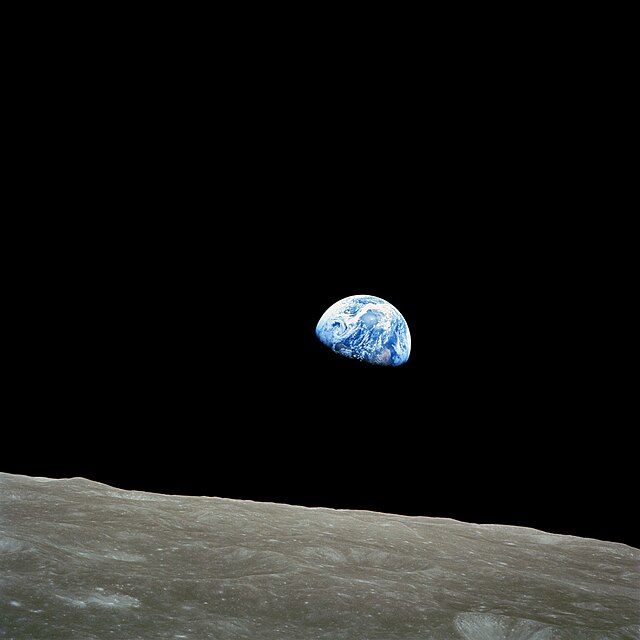 Image courtesy of Wikimedia Commons
Image courtesy of Wikimedia Commons
In a world where headlines are dominated by Elon Musk’s SpaceX launches and China’s lunar probes, France might seem like a quiet player in the space race. But look closer, and you’ll find that the country has been quietly, consistently — and ambitiously — charting its own course among the stars.
France doesn’t just participate in space exploration; it helps define it. From the reliable Ariane rocket program to bold lunar partnerships, the nation is reinventing what it means to be a European space power in the 21st century.
A Legacy Written in Fire and Fuel
France’s space story began not in the 21st century’s tech boom, but in the Cold War’s shadow. In 1961, Charles de Gaulle created CNES — le Centre national d’études spatiales — determined that France should not depend on American or Soviet technology.
That independence paid off. By the 1970s, the Ariane rocket family had become Europe’s workhorse, carrying satellites into orbit from the equatorial launch site in Kourou, French Guiana. The Ariane 5 — an engineering icon — went on to deliver payloads for the James Webb Space Telescope and dozens of commercial satellites.
Today, as Ariane 6 prepares for its long-delayed debut, France faces a familiar challenge: staying competitive in an era of reusable rockets and private disruptors. SpaceX can land its boosters on drone ships; Ariane can’t — yet. But CNES and its European partners insist reliability and precision still matter more than spectacle.
“Europe’s access to space is strategic, not symbolic,” says Philippe Baptiste, president of CNES. “We build independence, not dependence.”
A New Space Age — à la Française
Still, even France can’t resist the energy of the new “space economy.” The country has quietly become a magnet for startups exploring everything from orbital debris removal to lunar robotics.
Companies like Exotrail, which develops electric propulsion systems, and Latitude, working on small satellite launchers, are part of a dynamic ecosystem that blends public investment with entrepreneurial flair. The government’s France 2030 plan has earmarked billions for aerospace innovation, signaling that Paris sees space not just as science — but strategy.
And unlike the space race of the past, this new phase is not just about rockets. It’s about autonomy in data, defense, and infrastructure. France’s military space command, created in 2019, underscores this dual ambition: exploration and protection.
Eyes on the Moon — and Beyond
But perhaps the most exciting chapter in France’s cosmic story lies ahead — on the Moon.
CNES is a key partner in NASA’s Artemis program, contributing technology and expertise to the European Service Module that will power the Orion spacecraft. French engineers are also working on autonomous lunar rovers and communications systems designed for long-term missions.
France’s collaboration with Japan on the MMX (Martian Moons eXploration) mission — which will visit Phobos, one of Mars’s moons — shows that its ambitions extend well beyond lunar orbit.
And if that seems distant, consider this: every Ariane launch from Kourou, every partnership signed with NASA or ESA, is a statement of intent — that France doesn’t just want a seat at the table of the new space age. It wants to help design the table itself.
Between Idealism and Industry
Yet there’s tension in France’s space narrative. Some critics argue that Europe’s cautious, bureaucratic model can’t keep pace with private American firms that test and fail fast. Others counter that France’s slower, steadier approach reflects a fundamentally different philosophy: that space is a public good, not just a business frontier.
“Space should not become a playground for billionaires,” says astrophysicist Sylvestre Maurice, who helped develop instruments for the Mars rover missions. “It’s a shared human endeavor — and Europe, especially France, has a responsibility to keep it that way.”
That idealism runs deep in France’s DNA, where exploration is seen not only as conquest, but as contribution — to science, to humanity, to curiosity itself.
The View from Kourou
At the European Spaceport in Kourou, jungle humidity mixes with the tang of jet fuel. Engineers in white coveralls check telemetry screens as another Ariane payload readies for flight. It’s a scene that has changed little in decades — yet it represents a future that’s changing fast.
Soon, new generations of rockets, satellites, and robotic explorers will carry the tricolor flag deeper into space than ever before. France’s dream has evolved: no longer to prove itself against superpowers, but to help humanity dream beyond them.
From Ariane to Artemis, from Guiana to the Moon, France’s message to the cosmos is clear: Nous aussi, nous sommes prêts.
We, too, are ready.